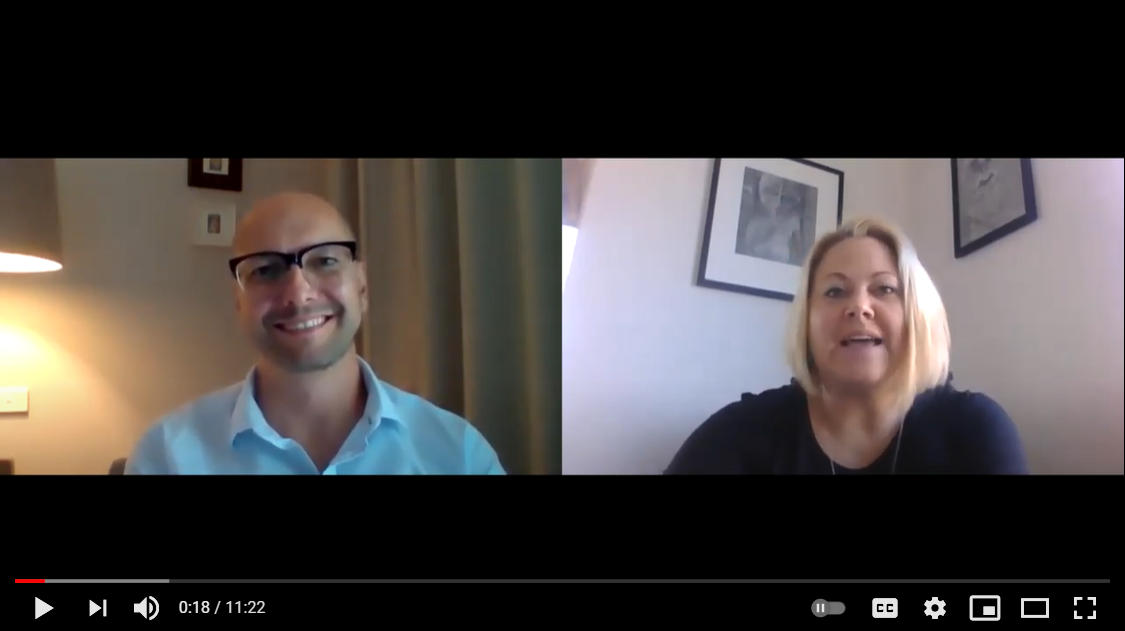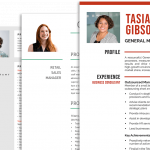Practical and refreshingly honest top-tips and biggest turn-offs for resumes, cover letters, screening calls and interviews that will give you a massive head start throughout the entire recruitment process.
Currently working in a small boutique firm called LG Professionals, Gavin Carnegie and his team do everything from writing the job ads, to narrowing down the best-fit candidates, to conducting the interviews for all new recruits. Here he shares the process his team follows, as well as plenty of ideas of how to stand out at each step of the recruitment process.
LG Professionals mostly advertise through SEEK, although sometimes they use different sites to see if they can attract different candidates. The Senior Leaders will handle the majority of the process, until the final interview when they involve other team members to test for culture fit.
Here are his top tips and biggest turnoffs at each stage of the process.
Resumes
Gavin’s biggest turnoff is an easy one. He hates it when people submit their resume with every minute of their working life included, “from the day they started working at Maccas when they were 14 all the way through to now. It is hard to sort through all of that information and try to work out whether they have the skills that you ask for in the job.”
On the flipside, he loves it when someone has a resume that is really easy to read (like a RecruitableHub resume!) where the last job, or the last couple of jobs have highlighted skills and tasks that they have achieved that speak to the job you are advertising for. This saves his from having to imagine what they job is, and imagine if they have the skills, whereas a resume really should be selling that they are qualified for the role.
Cover Letters
As LG Professionals always ask for candidates to submit a cover letter with their application, this is the first thing they screen for. They normally include one question for all applicants to answer in their cover letter – why your training skills, or event management, or membership experience would be beneficial to the association. It is surprising how many people don’t follow that simple instruction, and that is the first warning sign. People who prove they can’t read a simple instruction and follow it, and therefore don’t get through to the next round of screening calls.
Gavin hates generic cover letters. In his mind, if you are not going to curate your CV, then this is your opportunity to really sell the benefits are of your skill to the job. He understands that people copy and paste, and is sympathetic to the fact people are applying for multiple jobs, but at least make sure the company you name in your cover letter is the one you are applying to. A terrifying number of resumes literally just copy and paste all the same details, most of which are not relevant to the job he is recruiting for.
Overly generic cover letters will get you nowhere. Gavin wants to see something that makes him want to meet the person. It isn’t an additional piece of admin, it is another opportunity to sell yourself, especially if your resume doesn’t do an excellent job of it.
When asked what he reads first, resume or cover letter – he firmly replies cover letter “because only 50% of people include one”. Even when he has seen a great resume that was appropriate to the job but didn’t have a cover letter, they didn’t go through to the next round, as they couldn’t follow a simple instruction.
If candidates prove that they can’t follow a simple instruction, and can’t display attention to detail, he doesn’t see them working well together. “Delete!”
Screening Calls
Gavin’s biggest turnoff is when you catch someone the backfoot and they ask part way through the call “I’m sorry – but can you tell me what this job is again?”. In his mind, this proves that this role doesn’t have any real connection or importance for them. He believes this is the quickest way to prove to an employer that you are not after this job, you are after any job.
On the other hand, when he has called without an appointment or prior warning and the candidate says “I am so sorry Gavin, this isn’t a great time – can I organise a time to speak with you this afternoon or tomorrow morning? Is there any way you can call me at my lunch break?” he is deeply impressed. This tells him that they are professional and that their head is in the game.
In most respects this is best for both parties, and shows that they have good emotional intelligence and communication and can control a conversation, which is not always a skill that he asks for, but is definitely one he appreciates.
Interviews
Gavin loves people who are confident, centred and can look you in the eye – he classes these as human skills that make me want to know more about you. He loves it when someone has done clear research and have good questions. When they come with some well researched questions, he is willing to talk to them in greater detail as they have obviously invested time into this opportunity.
His biggest turnoff is when someone can’t make small talk. Especially as you aren’t allowed to really ask anything personal as a hiring manager, when you have to work as a small team, he needs to know that you will be able to talk about normal things like what you are doing on the weekend, or what you are looking forward to. When people have nothing to add to that, it makes Gavin think that you are secretive or worried about something. He understands that not everyone is comfortable talking about some things in case they are discriminated against, but it is wise to decide what you are willing to discuss prior to the interview and where your boundaries are. Even something generic like where you ate dinner last week, or where you are spending Christmas will still feel like sharing and create a stronger connection with the interviewers.
Stand Out Stories
This is really clear, as in Gavin’s experience there haven’t been a lot of exceptional cover letters. In this particular instance however, he felt like the letter was a personal note to Gavin addressing her experience and the job, which was not a straight trade.
The role was for a training position, and she wasn’t a trainer. She took a lot of time to build a case to really carefully outline how she met the criteria in her current role, even though technically her role wasn’t as a corporate trainer.
Her letter was so good that he did a phone interview, and she was so thoughtful and lovely, knew exactly who he was when he called and had some thoughtful questions prepared. As there was definitely no reason not to meet her, Gavin arranged for her to come in.
When they got through to the next round, there were other people who were equally as good but had more relevant experience, so although she wasn’t the most qualified candidate, he went to the CEO and asked if there were any jobs they could create for this girl because she was so excellent. In the end she took another job, even after meeting the CEO and throwing around some ideas of how she could be mentored into the position over time. Clearly, she was so impressive, there were other people trying to nab her also and she landed on her feet.
To connect with Gavin Carnegie, you can see his LinkedIn profile here https://www.linkedin.com/in/gavin-carnegie-57877217/








